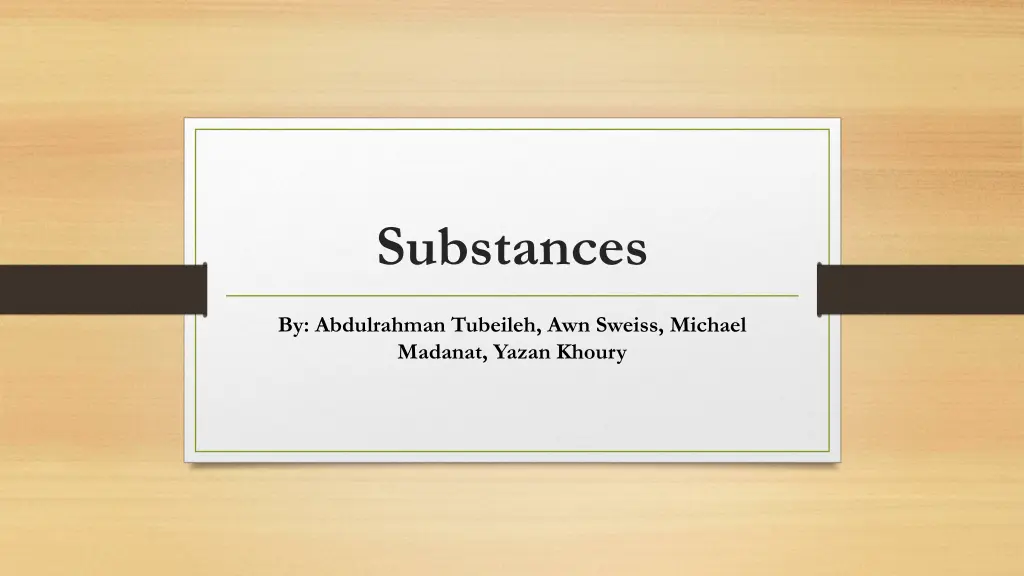
Substances Reacting with Water
Discover how magnesium, sodium, calcium, potassium, and lithium react with water to form different compounds such as hydroxides and hydrogen gas. Explore the exothermic nature of these reactions and their applications in various fields.
Uploaded on | 0 Views
Download Presentation

Please find below an Image/Link to download the presentation.
The content on the website is provided AS IS for your information and personal use only. It may not be sold, licensed, or shared on other websites without obtaining consent from the author. If you encounter any issues during the download, it is possible that the publisher has removed the file from their server.
You are allowed to download the files provided on this website for personal or commercial use, subject to the condition that they are used lawfully. All files are the property of their respective owners.
The content on the website is provided AS IS for your information and personal use only. It may not be sold, licensed, or shared on other websites without obtaining consent from the author.
E N D
Presentation Transcript
Substances By: Abdulrahman Tubeileh, Awn Sweiss, Michael Madanat, Yazan Khoury
How do substances react with water Magnesium(Mg) Magnesium hydroxide and hydrogen are formed when magnesium reacts with hot water and sometimes with water vapor. Magnesium does not react with cold water because it is coated with insoluble Magnesium hydroxide, which prevents water from coming into contact with it. A scientist uses magnesium in medicine. It's commonly used to treat skin issues, attention deficit hyperactivity disorder (ADHD), anxiety, mania, and post-surgery recuperation, among other things. Result: Mg(OH)2 Boiling point: 1,091 C Melting point: 650 C Density: 1.738 g/cm
How do substances react with water Sodium(Na) Sodium readily interacts with water. It reacts vigorously with water to produce a solution of sodium hydroxide and hydrogen gas. The nature of the reaction is very exothermic. The solution of sodium hydroxide results from the simple evolution of hydrogen gas, which occurs naturally as a vapor. Result: NaOH Boiling point: 882.8 C Melting point: 97.79 C 0.971 g/cm Density:
How do substances react with water Calcium(Ca) In this case, calcium reacts less vigorously with water to form calcium hydroxide and hydrogen gas. After the reaction is complete we observe that the metal floats in water because of the hydrogen gas which sticks to the surface of the metal. Result: Ca(OH) Boiling point: 1,484 C Melting point : 842 C Density: 1.55 g/cm3
How do substances react with water Potassium(K) When Potassium reacted with water it produces potassium hydroxide and hydrogen with a large amount of heat. Since heat evolved in this reaction. So, this is an example of an Exothermic reaction Result: KOH Boiling point: 758.8 C Melting point: 63.5 C Density: 0.862 g/cc
How do substances react with water Lithium(Li) Lithium reacts intensely with water, forming lithium hydroxide and highly flammable hydrogen. The colorless solution is highly alkaline. The exothermal reactions last longer than the reaction of sodium and water. Result: LiOH + H Boiling point: 1,342 C Melting point: 180.5 C Density: 0.53 g.cm-3
